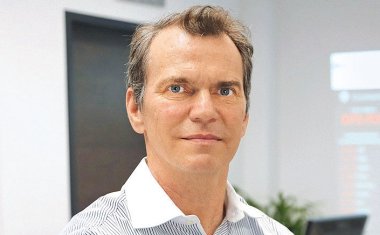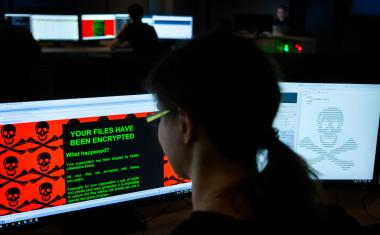International Air Transport Association: GIT-Interview with John M Edwards
International Air Transport Association: GIT-Interview with John M Edwards. Founded some 60 years ago, IATA today represents about 240 airlines comprising 94 % of scheduled interna...

International Air Transport Association: GIT-Interview with John M Edwards. Founded some 60 years ago, IATA today represents about 240 airlines comprising 94 % of scheduled international air traffic. Matthias Erler from GIT Security + Management talked with the international trade body’s Head of Cargo Security, John M Edwards, about the changes in cargo security since 2001 and about the newly founded ACSIF, the Air Cargo Security Industry Forum.
Mr Edwards, one of the topics of the IATA World Cargo Symposium in March this year in Rome will be „Cargo security is complex and costly – does the customer know or care?“ What makes cargo security so expensive?
JM Edwards: Security is costly; cargo security is no different. Consignments of cargo come in many shapes and sizes and have very different weights and densities. Some can be secured in the supply chain at or close to their origin, others cannot. Therefore a broad range of solutions is required.
Each solution requires a combination of people and equipment, training, management systems and quality assurance. Many security solutions require research, development of standards and procedures, co-ordination between supply chain members, secondary screening options, contingency planning, incident management, systems recovery and more.
Where cargo can only be secured at the airport of uplift this requires additional handling and increases the risk of damage, split-shipments, theft and delay.
IATA commits itself to high security and safety standards. Could you briefly summarise for our readers what major changes have been implemented since 2001 when transporting goods in aircraft?
JM Edwards: A magazine article could be written about this question alone! The most important development has been the launch and implementation of the IATA Operational Safety Audit (IOSA). Through IOSA, IATA aims to improve safety worldwide and reduce the number of audits required. It‘s a global programme built on ICAO standards and industry best practices, which includes an internationally recognised and accepted evaluation system. Its scope includes security; indeed there is a direct link to IATA SEMS, (Security Management Systems), which have been developed during this period.
SEMS provides a structured and standardised framework for security processes and promotes a business- like approach to security management. Another noteworthy development is the Global Aviation Safety Roadmap, introduced in partnership with key industry stakeholders including aircraft manufacturers, airport operators and others.
Speed is a basic demand of the business when it comes to transporting goods. Products have to be delivered „just in time“, and the „build to order“ production policy of companies depends upon reliable and, above all, speedy transportation processes. But are these now endangered by growing demands for security in the air freight business?
JM Edwards: For the most part, no – or at least not so long as common sense prevails. The threat from air cargo starts at the first point at which it is identifiable as destined for carriage by air. Wherever practical, air cargo should be secured at this point, or as close to it as possible. Once secure, and providing it is then protected properly against acts of unlawful interference, there is no need for further intrusive or disruptive inspection pre-uplift.
Where this is not possible, technology research and development should aim to design solutions that fit the business model rather than expecting operators to modify their business model to fit the solution.
The introduction of uniform European safety standards, such as Directive 2320, is a target of European law. Improvements are being prepared at the moment. What is the current status of these improvements, and what is necessary here in your point of view?
JM Edwards: On 11 January 2008 the European Parliament and Council agreed a new text for an EU regulation to replace 2320. This will go before the full Parliament in March. It aims to ensure a high level of aviation security throughout Member States, by clarifying the regulation and strengthening compliance.
Security programmes at national, airport and air carrier levels should ensure that the common rules are applied and maintained. Member States are free to apply more stringent measures, provided these are „relevant, objective, non‑discriminatory and proportional“ to the risk addressed.
How, and how strongly, can IATA influence this process?
JM Edwards: The Commission considers industry stakeholders‘ input to be an essential element of crafting better regulation – and for this the Commission deserves our congratulations. IATA has influenced for many years - and will continue to influence - the development, implementation and enforcement of security directives and regulations where it is appropriate do to so.
We have a long-standing and pragmatic relationship with the Commission and many Member States. Wherever possible we work closely with other industry associations to draft proposals and coordinate responses to Commission proposals. In addition to improving regulation this results in a better appreciation of the challenges the industry faces.
One of the recent activities of IATA was the founding of AC SIF, the Air Cargo Security Industry Forum. What is the purpose of this Forum and what has it achieved so far?
JM Edwards: ACSIF is a joint initiative chaired by myself for IATA and Piet Timmermans for FIATA. It was established to build bridges between industry associations, strengthen relationships, develop communication and information sharing and most importantly build alignment of positions where possible – on the basis of „many voices, one message“.
We now have Terms of Reference, 25 member associations, have conducted several meetings, via conference calls and are introducing ourselves through magazine articles and presentations. Initial positions and principles have been agreed.
Our first Annual General Meeting will take place during the IATA World Cargo Symposium in Rome in March 2008.
Contact:
International Air Transport Association (IATA),
Geneva, Switzerland
Tel.: +41 22 770 2525
Fax: +41 22 770 2641
www.iata.org












